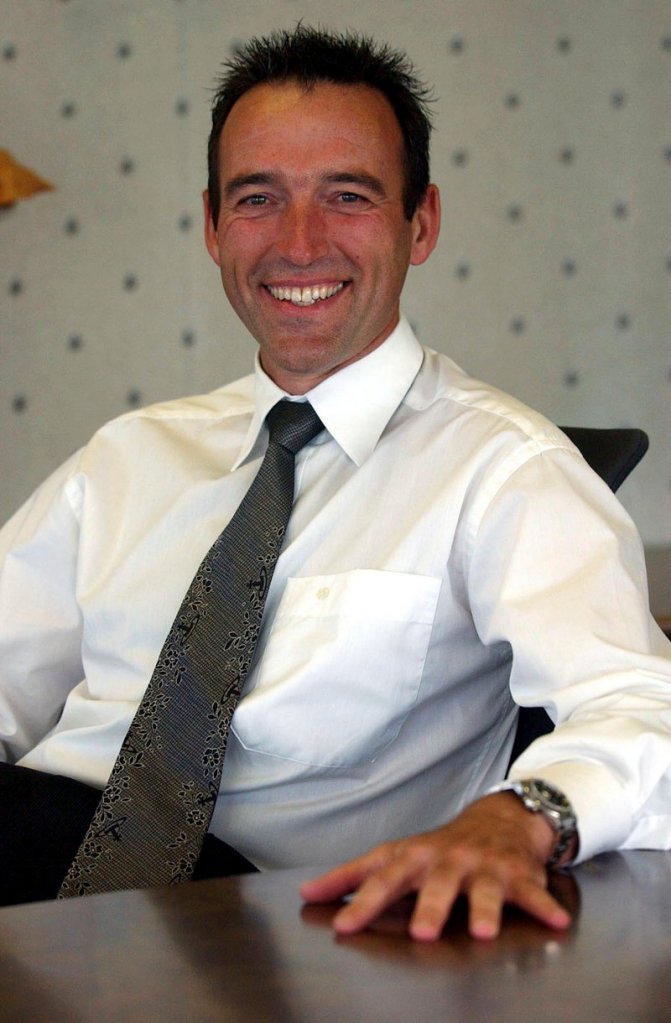WELLINGTON, New Zealand – The reclusive New Zealand billionaire buying the U.S. maker of Hefty brand trash bags to create the world’s second-biggest packaging business started out as a tow truck driver and bounced back from the brink of bankruptcy more than a decade ago to become his country’s richest person.
After dropping out of high school at age 16, Graeme Hart now has a fortune estimated at $4 billion by New Zealand’s National Business Review and holds spot No. 144 on Forbes magazine’s list of the world’s wealthiest people.
The 55-year-old is a study in contrasts with better known billionaires from New Zealand and Australia. Unlike News Corp. boss Rupert Murdoch, a brash Australian who adopted U.S. citizenship, Hart obsessively shuns the spotlight and has not sought to parlay his wealth into political clout.
And his flagship investment vehicle, Rank Group — a small, tight team of trusted business analysts and strategists who work with Hart to target opportunities and squeeze costs out of companies to increase value — is barely known outside financial circles.
Hart and his wife of 25 years, Robyn, live in a $16 million house in Auckland, have a retreat on nearby Waiheke Island and accommodations in Sydney and London, own 39-acre Eori Island in Fiji and a 190-foot luxury motor yacht, Ulysses.
Yet fortune hasn’t always smiled so lavishly on the Kiwi entrepreneur. He narrowly avoided bankruptcy in the late 1990s when his investment in a business as much lacking in glamour as packaging — Australian yeast and spice maker Burns, Philp & Co. — soured. Faced with personal ruin, he convinced bankers to agree to debt repayment standstills that allowed the company and Hart to come back from the brink.
“He is the nearest thing to being a business loner,” says New Zealand business commentator and author Graeme Hunt, who predicted Hart’s move on Pactiv, the U.S. trash bag maker.
“I think he really enjoys looking at the back end of annual reports, looking at balance sheets, looking at uncovering and unlocking value within companies,” he said. “The amount of money he borrows would scare most people, but he’s probably the most skilled New Zealander at raising debt.”
The deal for Hart’s Reynolds Group Holdings Ltd., a Chicago-based subsidiary of Rank, to buy Illinois-based Pactiv, the maker of Hefty trash bags, would create a packaging giant with sufficient bulk to strike exclusive packaging arrangements with global food conglomerates, such as Kraft. Reynolds will pay about $4.4 billion. With debt included, the acquisition is valued at around $6 billion.
But scale is likely only a means to an end. Over the years, deals by Hart — whose university MBA dissertation was on leveraged buyouts — have had a similar pattern: debt-funded acquisitions in run-down industries, cutting operating costs sharply by reshaping the business and selling for a solid profit.
The elusive Hart, who reportedly last gave an interview to a reporter in 2003, began building his empire in the party hire business in the late 1980s, before buying New Zealand’s inefficiently-run Government Printing Office in a state asset sale, followed by book and stationary seller Whitcoulls.
Each made solid profits for Rank Group when they were sold, as eventually did the Australian food company Burns, Philp, and then his float of Australia’s Goodman Fielder Foods in 2005.
Along the way, Hart has demonstrated a ruthless streak. Hunt says in one afternoon he sacked several hundred management and administration staff from Goodman Fielder, a company that was staggering under the weight of inflated costs.
New Zealand’s National Business Review reported that together these deals gave Hart a war chest of about $2.1 billion, increased further when he sold major New Zealand forest assets in 2006 for another $1.1 billion.
With that cash pile, it has taken Hart just four years to amass packaging assets that could challenge those of global market leader, Swedish-based Tetra Laval.
In 2007 he began bulking up his packaging holdings, taking over the world’s second-largest food packaging company, Swiss-owned SIG with a bid of $2.3 billion.
A year later, Hart’s Rank Group paid $2.7 billion for the food-packaging division of Alcoa Inc., which included Reynolds.
This year Hart began to consolidate his holdings in the industry, looking to raise $1.75 billion so that Reynolds could buy two other companies that Hart already owns, U.S.-based Evergreen Packaging and a paper mill in the New Zealand town of Whakatane.
While the group’s total packaging assets have risen to over $5.7 billion, Reynolds’ total debt is around the same — some $5.9 billion following a recent bond issue and an additional bank debt line.
Britain’s Economist magazine in May speculated that all the packaging sector aggregation might be a prelude to “Mr. Hart’s ultimate goal, if his past dealings are any guide to sell Reynolds for a striking profit.”
Hunt, the New Zealand business commentator, said he “absolutely” expects Hart to do that.
“He’ll cut the administration down to nothing, remove the human resource departments, the in-house lawyers, the PR people, the advertising agencies,” Hunt said. “It’s a question of only keeping the property and assets that work for you and being fairly brutal about making tough decisions.”
Send questions/comments to the editors.



Success. Please wait for the page to reload. If the page does not reload within 5 seconds, please refresh the page.
Enter your email and password to access comments.
Hi, to comment on stories you must . This profile is in addition to your subscription and website login.
Already have a commenting profile? .
Invalid username/password.
Please check your email to confirm and complete your registration.
Only subscribers are eligible to post comments. Please subscribe or login first for digital access. Here’s why.
Use the form below to reset your password. When you've submitted your account email, we will send an email with a reset code.